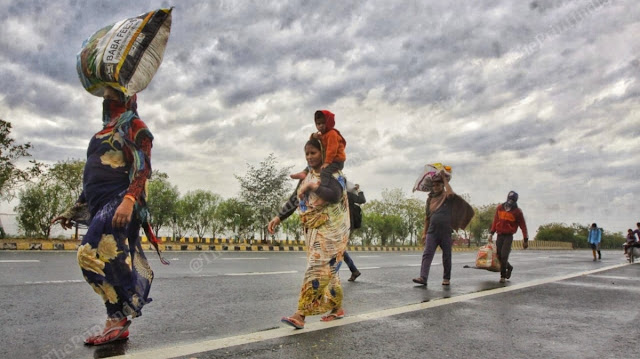Solid Waste Management : Challenges and Solutions
In a world where everything is attributed a monetary value, what remains to be seen through is ' Potential of Waste ' to turn into ' Wealth '. If we realise this potential then, Solid Waste Management ( SWM ) would no more be a taboo or something limited to being duty of a lower caste-class person.
However, to realise this, we need to understand;
What Solid Waste Management (SWM) exactly is?
It refers to the process of collecting, transporting, treating, analysing and disposing off waste.
So, where's the problem?
The problem lies in whole process ;
• While door-door waste collection in India has increased from 40% (2016) to 95% (2020) but very less number of households and enterprises segregate this waste generated at source.
This whole solid waste can be categorised into following three broad kinds -:
1) Organic -: Fruits,Vegetables etc.
2) Dry -: Paper, wrappers etc.
3) Toxic -: Medicines, bulbs, batteries etc.
According to the Ministry of Housing and Urban Affairs, Maharashtra generates the highest waste amongst states (22080) MT / day while Sikkim generates the lowest (89) MT/day. Delhi amongst the UTs is at the top while Daman & Diu & Dadra and Nagar Haveli is at the bottom.
• The transportation of solid waste is yet another challenge. According to the procedure involved, Waste carrying trucks need to typically wait for hours in line for their turn to weigh the collected amount of waste and again wait then for dumping the waste into the landfill. This process creates two perverse incentives for the contractors -:
1) The contractor dumps it illegally onto any vacant plot to save on transportation costs and time.
2) Since, the contractor earns revenue on weight of waste, they use big boulders/rocks to increase the weight rather collecting waste from source.
• Whereas, waste dumping and open burning continues to be the principal methods of waste disposal in India, dumping grounds are often unsustainable as landfills have got no foundation, lining, levelling. Research shows that most of the landfills in the country have now been exhausted.
Moreover, the enforcement of covid - 19 induced lockdown has changed the quantity and source of solid waste generated where excessive volumes of PPEs, Surgical Masks, Gloves have become a significant challenge for its proper handling before the authorities.
Along with all these challenges, India faces problems at the front of -:
1) Conflicting data on waste generation with no periodic reviews.
2) Lack of research proving as an impediment for policymakers.
3) Local authorities lack adequate funding and infrastructure, thus unable to adopt innovative and appropriate technologies.
4) Lack of proper and regular training to people involved in the process.
5) Inadequate participation of the private sector.
Various researchers and scholars in their writings have suggested to -:
1) Establish a centralised database on Urban Local Bodies's experiences in SWM.
2) Regular monitoring and data collection by a team.
3) Private participation shall be encouraged to ease the burden on public coffers.
4) Integration of informal recycling into the formal sector.
5) Policies to incentivise producers to minimise waste generated and take responsibility for its disposition.
6) Sustainable SWM should aim to drive behavioural change amongst the citizens, elected representatives.





Comments
Post a Comment